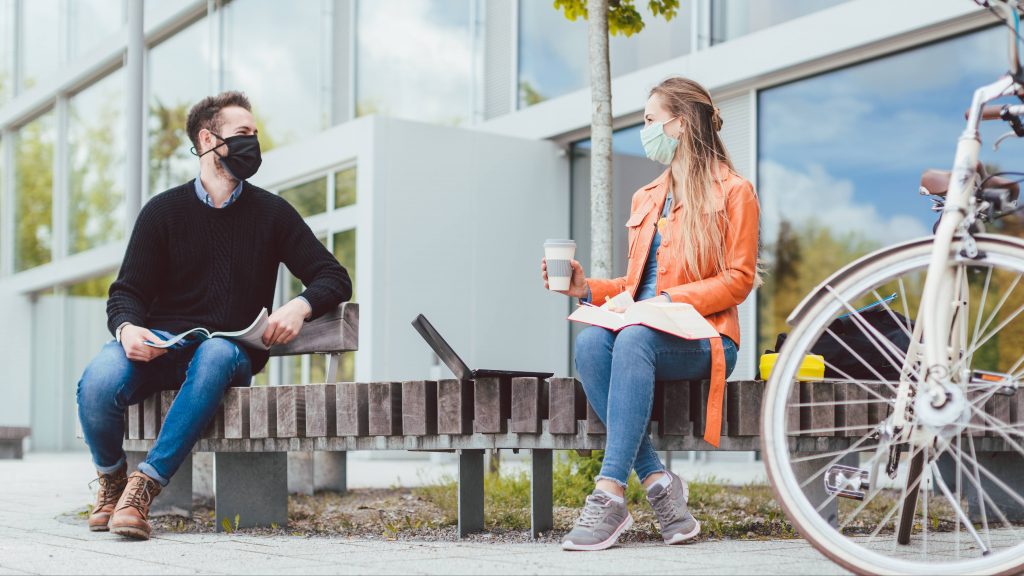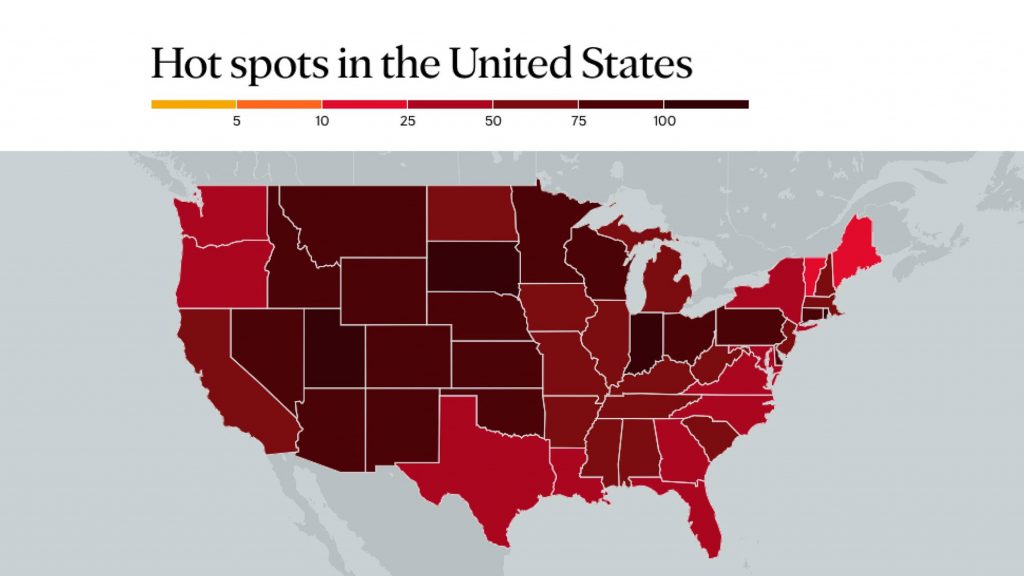
Have you ever heard a lame joke but see everyone else is laughing so you find yourself giggling along? Or lean into a conversation when others were, as well? Or yawned following another person's yawn even though you don't feel sleepy?
This article is written by Judy Fruehbrodt Glenzinski, M.D., a Family Medicine physician at Mayo Clinic Health System in Faribault, Minn.
These are examples of a common behavior called mirroring, where people mimic gestures of people they like. It happens all the time without people realizing it. This subconscious behavior is often referred to as the chameleon effect. Some examples include mirroring another's gestures, expressions, tone of voice or body position.
Creates connections, influences attitudes
Humans are social beings, and mirroring can create powerful connections with others, and cause others to like and trust you more. In these situations, imitation is a form of flattery and builds rapport with others.
In addition to mirroring gestures, people often mirror the attitudes they adopt and the decisions they make after important people in their lives. At a young age, people tend to adopt attitudes, gestures and behaviors from family members and close friends. As they age, the circle of influence is expanded to include other people of importance, such as teachers, faith leaders, sports figures, celebrities and politicians.
For example, you are more likely to buy a product that is used or promoted by a beloved sports figure or celebrity, or adjust your attitudes to mirror that of politician or another important figure in your life. Research has shown that people react more positively to celebrity advice and subconsciously adapt behaviors to become more like the celebrities they admire.
These attitudes and behaviors can affect more than just your bank account. They can affect your overall health.
COVID-19 behaviors
During the COVID-19 pandemic, infectious disease experts have asked people to adopt behaviors to slow the spread of the virus, such as wearing a mask, frequently washing hands, staying home and maintaining social distance from others. However, people's compliance with these recommendations is influenced by compliance of others nearby, on TV or online.
This harkens back to people's adolescent years and a desire to be part of the "in" crowd. People's brains are wired to mirror the behaviors they see so they fit in and find acceptance. Their attitudes toward COVID-19 and behaviors to prevent COVID-19 spread are no different.
For example, if you are the only person wearing a face mask at the gym or in a store, you are more likely to remove it. Likewise, you are more likely to have a positive attitude toward a specific behavior, like staying home for the holidays, if it is endorsed by a favorite celebrity or another important person in your life.
Taking action
Much of these behaviors or attitude shifts occur subconsciously, but there are things you can do to raise your personal awareness and react in a helpful way:
- Research COVID-19 recommendations.
Use trusted, verified sources of information, such as the Centers for Disease Control and Prevention and the World Health Organization. - Question your attitudes.
It is helpful to take a step back to ask yourself why you feel the way you do about a specific topic. Would you continue to feel the same way if an influential person in your life had a different recommendation? What things would need to occur to change your attitude? - Surround yourself with positive influencers.
Are your health, happiness and safety important to the people you allow to influence your life? If not, you may want to reevaluate their priority in your life. Also, examine the elements of your life that you allow to be affected by celebrities. It may be OK to emulate a celebrity by purchasing a perfume or shoes he or she endorses but not follow his or her advice on decisions that affect your health. - Make a plan for social situations.
Before leaving the house, make a plan for how you will behave in the situation. For example, you may decide that you will keep your mask on regardless of the situation you encounter. Practice phrases to use if you receive pressure to behave differently, such as: "I don't love wearing a mask, but I do it because it keeps me and you safe. That's my priority right now."
The COVID-19 pandemic has challenged many daily routines and traditions. It also presents an opportunity to critically evaluate how you are subconsciously influenced by others. During this time, talk with your health care provider if you have questions about slowing the spread of COVID-19 or other elements of your health and safety.
Learn more about: Tracking and trending COVID-19

Information in this post was accurate at the time of its posting. Due to the fluid nature of the COVID-19 pandemic, scientific understanding, along with guidelines and recommendations, may have changed since the original publication date.
For more information and all your COVID-19 coverage, go to the Mayo Clinic News Network and mayoclinic.org.







